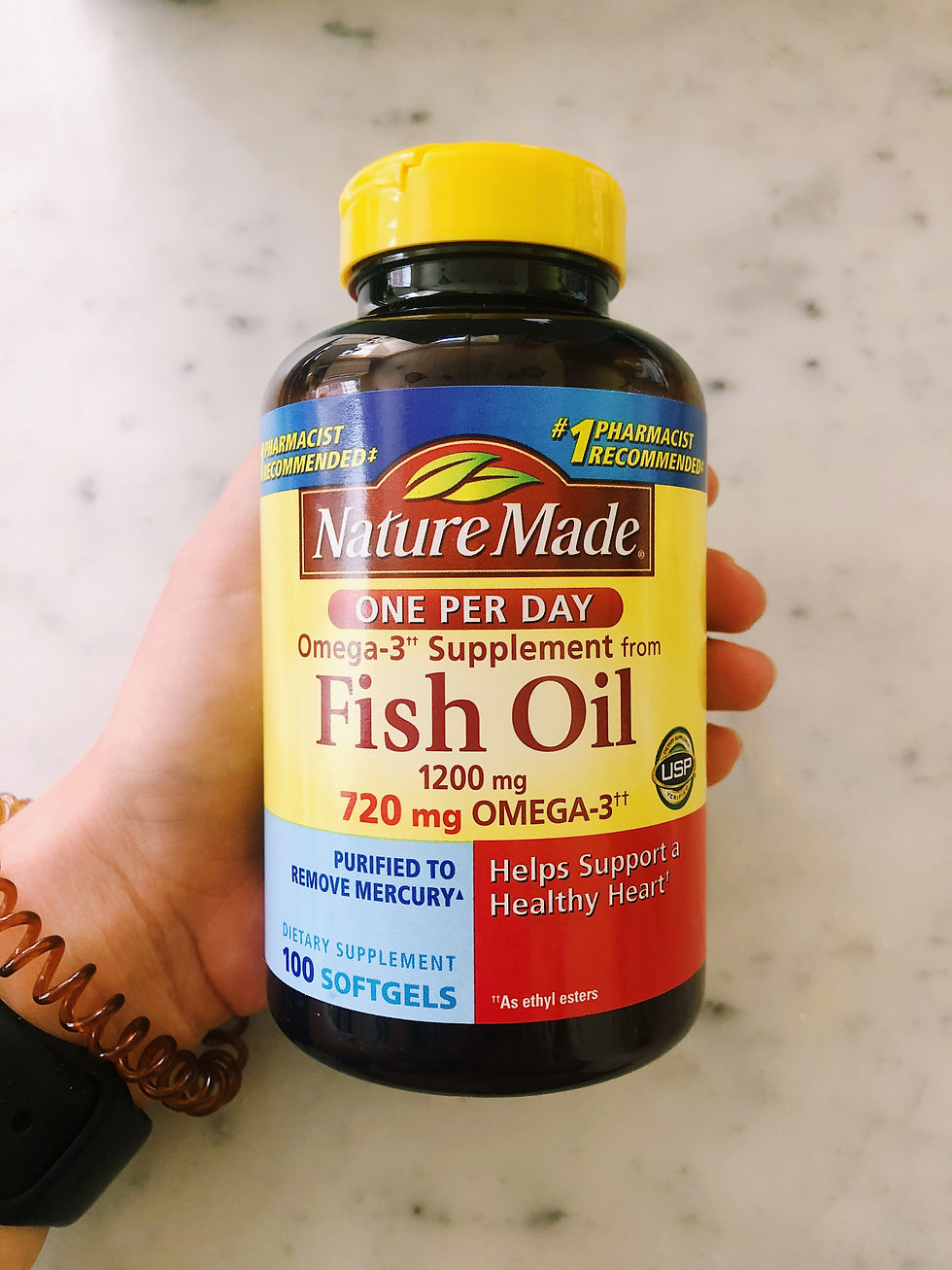Supplement Sunday - Omega 3s

The omega-3 fatty acids are essential nutrients for humans, which means that the body cannot make them, and they must be obtained through food or supplements. Without being too "sciency" (not even sure that is a word but), they are found in the diet as alpha-linolenic acid (ALA), eicospentaenoic acid (EPA), and docosahexaenoic acid (DHA). I know your head might be spinning, but each serves a different function in the body.
The other type of omega fatty acid is the omega-6 fatty acid which is also an essential fatty acid and very important to health. The problem is that the standard Western diet or standard American diet (appropriately known as the SAD diet) is very heavy in processed foods, providing an excess of omega-6 fatty acids which are linked with increased inflammation (bad) and pain syndromes. Most American diets provide at least ten times more omega-6 than omega-3 fatty acids.
To help balance the diet, most people need more omega-3 fatty acids. Adding oily fish from cold , northern waters to your diet two times a week is one approach. Examples of these fish are salmon, sardines, herring, and black cod. The problem is not everyone likes sardines, salmon, etc.
I also worry about recommending people to eat more fish for two reasons. Many fish these days contain environmental toxins — including mercury, and the cancer causing polychlorinated biphenyls (usually referred to the PCBs) from pollution of lakes, rivers and oceans. I love sushi, but this is one of the reasons I don't eat it four days a week (although I could). Secondarily, I worry about the possibility of losing fish as a natural resource by overfishing those same bodies of water. There are companies that are working on sustainability and safety in fish farming. I will do a whole post on this, and what to do about it, I promise.
For those who can't eat fish regularly, the second approach is to take a daily omega-3 supplement. Most fish supplements in the US are free of detectable levels of mercury, solvents and other contaminants. Look for the brands with independent certifications and those that are tested for quality (examples are US Pharmacopeia (USP), TGA Approved, IFOS & IKOS and Consumer Lab certifications). Good quality fish oil supplements should not smell "fishy" — a sign they have gone bad. The fish oil should be taken with your biggest meal to improve absorption. Although you can buy a "burp-less" fish oil, if you get the regular fish oil, you can store them in the freezer or refrigerator and take them cold to help reduce burping, if it bothers you. We try and eat fish a couple of times a week, but in the event I don't, I take a fish oil with my multi-vitamin everyday. You can play around with when it is easiest to remember to take it. I take mine with dinner and have been known to even pull them out at restaurants. GEEK alert, I know!!!

Another source for omega-3 fatty acids is krill oil which is derived from tiny crustaceans called Antarctic krill. These sea creatures are a dietary staple for many animals, including whales, seals, penguins and other birds. Some studies suggest that krill oil may be absorbed better than fish oil. However, further research is needed before any definitive conclusions can be made. Krill oil looks different than fish oil. While fish oil is typically a shade of yellow, a naturally occurring antioxidant called Astaxanthin gives krill oil a reddish color. While krill oil may share and even exceed many of fish oil’s health benefits, it comes at a higher cost. Because of expensive harvesting and processing methods, krill oil can be as much as 10 times more expensive than fish oil. Be sure to talk to your health care provider if you have any history of fish or shellfish allergies.
Well, you may ask, what if I am a vegetarian?
Vegetarian omega-3 capsules made from algae are also available. Whole organic flaxseed is another good source of omega-3s. Keep the package in the refrigerator, and grind a half-cup or so at time, using a blender or coffee grinder. It is better to do a little at a time for freshness. The flaxseed meal tastes nutty and can be thrown into cereals, salads or any dish. A tablespoon of ground flaxseed meal once a day will give you a good dose of omega-3s. Do remember flaxseeds are high in fiber and will increase the bulk of your stools and may act as a laxative in some people. Yes, I just went there, moving on!
Your healthcare provider will recommend the the dose that is right for you, but the general recommendation is 1-2 grams of EPA+DHA per day.
Possible adverse effects include anti-coagulant (clotting) properties. However, studies have shown fish oil to be safe. Always check with your health care provider if you are on a drug to reduce clotting, have an inherited bleeding disorder, or are on chemotherapy. You are usually asked to stop taking them prior to any procedure or surgery as well.
There are so many good brands out there, but here are a few:
Fish Oils
Krill oils
Vegetarian/Vegan
Flaxseed
All material gathered and researched through my amazing fellowship program, The Arizona Center for Integrative Medicine.
https://integrativemedicine.arizona.edu/


Kommentare